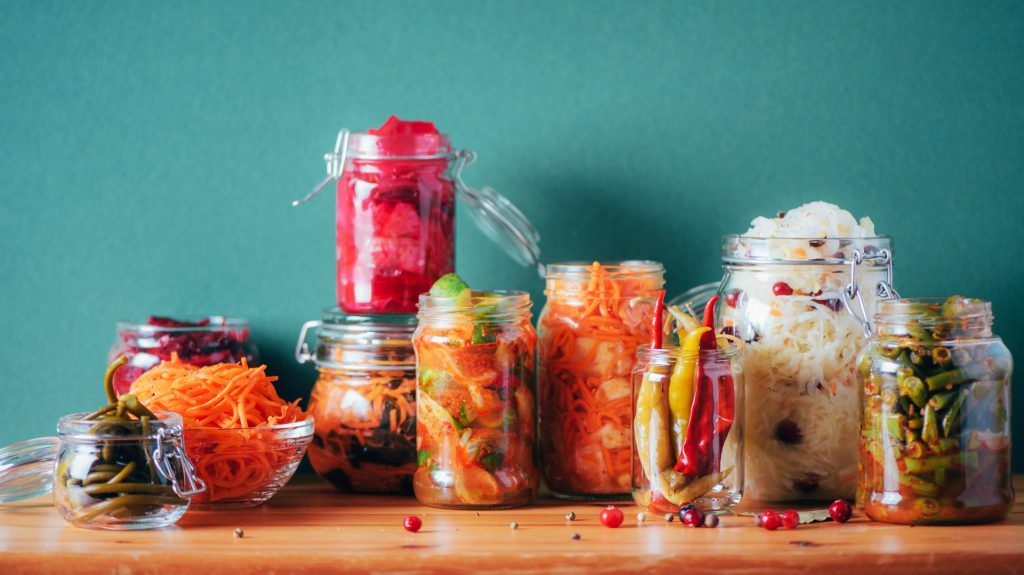Biochemical Individuality: Why Your Diet Doesn’t Work. Just like no two snowflakes are alike, we too are all unique individuals.
In other words, dietary requirements can vary dramatically from person to person based on nutritional and biochemical make-up.
This is biochemical individuality.
This also explains why some folks do better with more animal products in their diet, while others do best with less.
When I begin working with a client, far too often I hear “but so and so of the vegan world says I should do this, or this expert from the paleo faction says I should do that.”
Even though my clients have been doing “that” their results are the quite the opposite of what the “expert” says they should be.
Why is this?
There are several reasons a particular diet isn’t giving you the results you want: heredity, constitution, life cycle, and stress.
If your ancestors come from a tropical climate, you may be able to tolerate more carbohydrates. If your ancestors come from a colder climate, higher amounts of fat and protein may feel good in your body. If you look at Chinese and Ayurvedic medicine, both are very clear in their classification of different constitutions and the many different types of foods and herbs required to support them.
From a biochemical standpoint, low-serotonin depression types do better with more animal protein; those with high anxiety (too much methyl) that lean in the opposite direction, do better on more vegetables with less animal protein.
In other words, one man’s medicine is another man’s poison.
Throughout your life, your body will go through many cycles of cleansing and rebuilding (anabolic/catabolic cycles). Both processes require very different nutrients so it makes no sense to think that one dietary approach is going to sustain you forever, let alone for months at a time. I made this debilitating mistake for three years on a raw vegan diet.
Environment, stress, food, and emotions all play a role in these cycles. This is where epigenetics – the software that tells your hardware (DNA) what to do – starts giving you errors; just like the kind you see on your computer screen.
For example, let’s say you’re a foreign student from Japan attending school in NYC. Growing up you ate an iodine, omega-3 rich diet of fish, sea vegetables, white rice, sweet potatoes, pork, and eggs.
This diet left you naturally slim and healthy.
You get off the plane and are immediately bombarded with the stress of being in a new country, with a language and diet that are completely foreign to you. Your body is in shock. This shock creates epigenetic errors (deficiencies) that begin to affect how you feel, think, and act. Even though you’ve steered clear of American junk food, the diet in your new homeland is still very different than the ancestral diet you grew up with.
Due to nutrient deficiencies from food and stress, you begin to put on weight, develop clinical depression, and generally feel rotten.
Sure, we all need a balanced ratio of macronutrients (proteins/carbs/fats), but the ratio is different for everyone based on their biochemical individuality.
Did this post benefit you? If so, please share your thoughts below. It is through sharing your story that we create community, eliminate guilt and shame, and bring about healing.









6 Responses
How does one determine what’s right for them without relying on expensive tests? I can safely say thay not only myself, but most others I know as well, have a combo of stress, poor or imbalanced diet, and toxic system. So much frustration occurs from starting things like GAPS, BED, Paleo etc only to find that it’s not working or just way to hard or confusing.
Decades of S.A.D., chronic fatigue and skin issues, premature graying, hair loss, memory issues…… Back to my original question — where does one start to recover/rebuild?
Thank you for what you do and sharing your story.
Annie
Hi Annie,
Thank you! That’s a wonderful question! While testing is an excellent diagnostic tool, it is not the be all end all. Like you, most of my clients struggle with a “high fact diet” that creates even more confusion. Science is great, but does not have all the answers. I’d like to offer you a complimentary session to see how I can help and answer your question in greater detail. If that feels good to you, let me know and I’ll get you scheduled.
Big hugs,
Sami
Me again Sami. I know you’re busy, but you say “From a biochemical standpoint, low-serotonin depression types do better with more animal protein; those with high anxiety (too much methyl) that lean in the opposite direction, do better on more of a vegetarian style diet with less animal protein.” and I have high anxiety AND depression. So glad we’re going to have a consultation. I am very confused. I also have panic attacks. Thanks, Marcia
Hi Marcia,
This is a fantastic question and one I get asked a lot. Keep in mind this is just a starting point. Truth is, we won’t know until you are tested and have a thorough health history. I look forward to our consult and will have my assistant get you scheduled when she is in the office on Monday. Hugs.
I am in agreement with the first commenter above…I have tried everything from a healthy stand point. I have been reading more and more about finding a sort of homeostasis in the biochemistry of your body, but I don’t even know where to start. I will stick to healthy eating, aiming to eat more fruits and veggies, whole foods, and leaner proteins while working out both cardio and weight training but in the absence of results, it just seems stupid to continue not doing what I want to do. Don’t get me wrong, I feel pretty good, but I have never been able to lose a single pound in about 4 years of trying now. I just don’t know what to do next. Where do I start?
Hi Andi,
I certainly understand how you feel. Figuring out what works best for you and your body can be frustrating at times. Are you looking for someone to help you in the process?